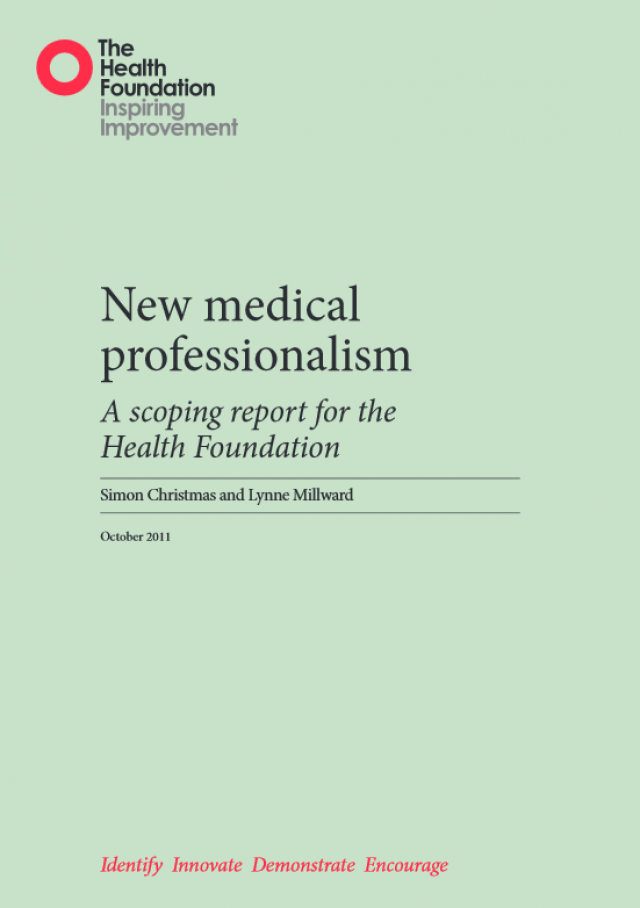New medical professionalism A scoping report for the Health Foundation
October 2011

Key points
- This report address three questions:
- What questions are worth discussing?
- Who needs to be involved in the discussion?
- How can we make sure the discussion is constructive?
This report reviews the ways in which doctors’ relationships with evidence, society, patients, teams, regulators and employers have changed, are changing or may need to change. It discusses the implications of these changing relationships for medical professionalism.
The role of doctors has always evolved in response to changes in society, demand, the structure of healthcare services and the changing state of medicine itself. This trend continues with various factors driving important changes in the roles played by doctors and others working in healthcare. The motivation exists among doctors and others to rise to both the challenges and opportunities these changes create.
Recent history has left many working in healthcare feeling battered, exhausted and cynical about further change. This situation creates significant risks for patients and public.The Health Foundation wants to play an active and constructive role in addressing these risks. The first step is to conduct a genuine dialogue involving truly diverse participants.
While the focus of the report is on medical professionalism, the question of whether ‘medical professionalism’ is even the right topic for dialogue is also discussed.
Work with us
We look for talented and passionate individuals as everyone at the Health Foundation has an important role to play.
View current vacanciesThe Q community
Q is an initiative connecting people with improvement expertise across the UK.
Find out more

